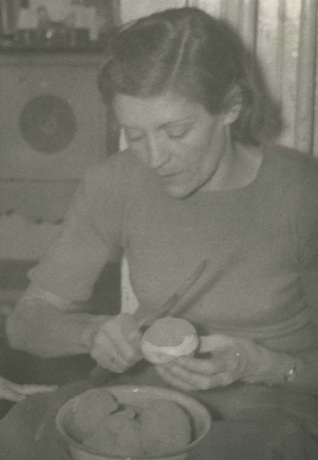A Look Back At Your Working Life
So, if you don’t mind my asking—where did you start? Working, I mean!
Was your first job delivering newspapers, mowing lawns, raking leaves, or perhaps something more exotic? What types of “first jobs” were out there? Some of us started humbly, sweeping floors in the back of a shop, flipping burgers, or stocking shelves at the local grocery store. Others may have jumped into more specialized work—working in a factory, helping on a farm, or, in my case, dodging flying bowling pins in a basement bowling alley.
My father was the son of a coal miner, but he flatly refused to work in the mines. Instead, he became a house painter. It was honest work—his own way of choosing a different path I guess.
In my own “pre-career days,” my very first job was as a pinboy at a Jewish Center where there was an eight-lane bowling alley in the basement. It was a job that required quick reflexes and a willingness to get smacked in the head by a rogue bowling pin.
Of course, none of that young working life was ever recorded on the resume of “necessary things done to support myself and my family.”
Then one day, after decades of work, after climbing, striving, and pushing toward middle management, I reached the moment where my resume had one final entry: “Retired.”
So, Here We Are—At the Beginning of the End. Or the Start of Something New?
Retirement is often seen as a kind of grand finale—a bow at the end of the performance. But is it? Is it really the end, or just an intermission before the next act?
Think about the first time you entered the workforce. You had no roadmap, no certainty, no guarantees—just a willingness to step into the unknown and figure it out as you went.
Retirement, in many ways, is a return to that. You have the chance to redefine who you are, to start something new, to learn, to explore, to create. But where does one start?
The Fear of the Blank Slate
The prospect of starting over at retirement can be both exhilarating and intimidating.
The structure of a job—having a place to go, people to interact with, tasks to complete—that all disappears in an instant. You wake up on the morning after; after a few extra hours of sleep, and there is a void in front of you.
That void can feel unsettling. Without a plan, without a purpose, it can feel as though you’ve been cut adrift. That’s when the mind plays tricks: Am I still relevant? Do I still have something to offer? The answer, of course, “yes, you certainly do!” Leaving it up to you now, as it was way back when; you are free to decide what your first job will be.
The Art of Reinvention
Retirement isn’t about stopping; it’s about pivoting. It’s about rediscovering old passions, or embracing new interests!
It’s about allowing yourself the freedom to be something different than you were before, if that’s what you would like: art, sculpting, oil painting, travel, start businesses, mentoring, music, etc.
Others, like myself, find work in a field they always felt they wanted to try. I wanted to work in the medical field, so I took a job at the hospital in a surgical ward.
Others dive into volunteer work, pursue long-neglected hobbies, or finally write that book, or (like this) a blog page. What’s your pleasure? A 71-year-old neighbor just published her first travel book!
The first job you ever had was about growth and survival; this new phase of life is about something totally different: fulfillment.
What Now? The Practical Side of Starting Over
So, how do you go about it? Here are a few things to consider:
- Take Inventory of Your Interests – What have you always loved but never had time for? What excites you? What would make you eager to start your day?
- Life-long learning – Go back to school! Learn something new—take a class, get a certification, dive into an online course. There are many out there free to seniors.
- Stay Connected – Find a community group, whether through clubs, volunteer work, or simply making an effort to reach out to friends.
- Give Back – You have a lifetime of experience. Find a way to share it. Perhaps your education and experience could be used for mentoring, teaching, or working with a nonprofit? Your knowledge can be invaluable to someone else.
- Set Goals – An aimless retirement is a waste of life! Set personal challenges—run a marathon, start a blog, build something with your own two hands. In my case, I turned my tiny 10′ x 12′ shed into a workshop and have done countless repairs and projects for those in our community.
The Beauty of a Second Beginning
The truth is, we never really stop evolving. The only thing that truly defines retirement is what you choose to do with it.
Some will sit back, relax, and savor the slower pace. Others will chase new adventures, reinvent themselves, and turn this chapter into the most interesting one yet.
Aging can be like fine wine—rich with depth, full of character, and appreciated for its complexity. Or it can be like expired yogurt—forgotten, left in the back of the fridge, a victim of neglect.
The choice is yours. So, here we are at the start of something new. What will you do with it?
Share This Story:
Leave A Comment
You must be logged in to post a comment.











